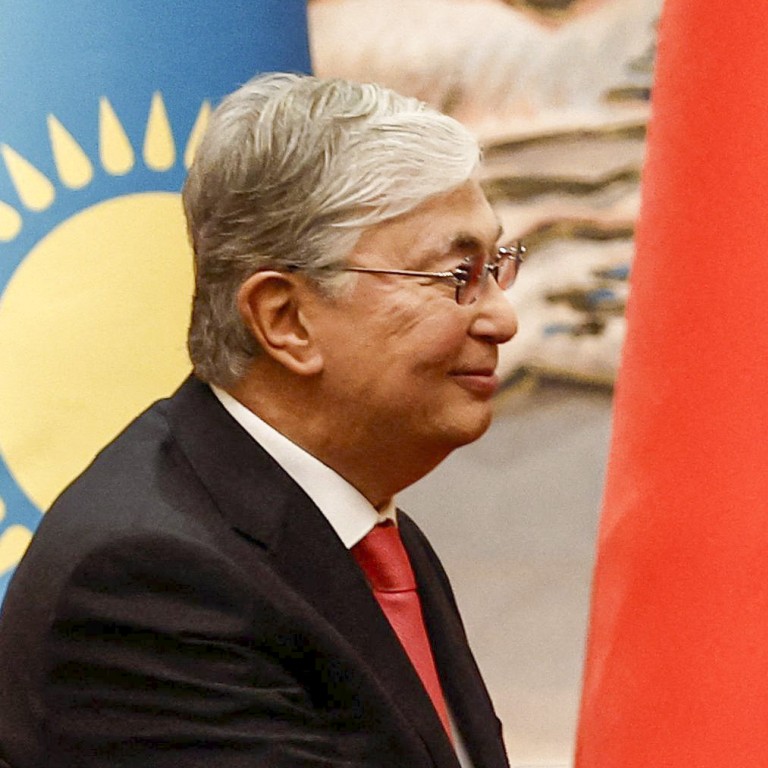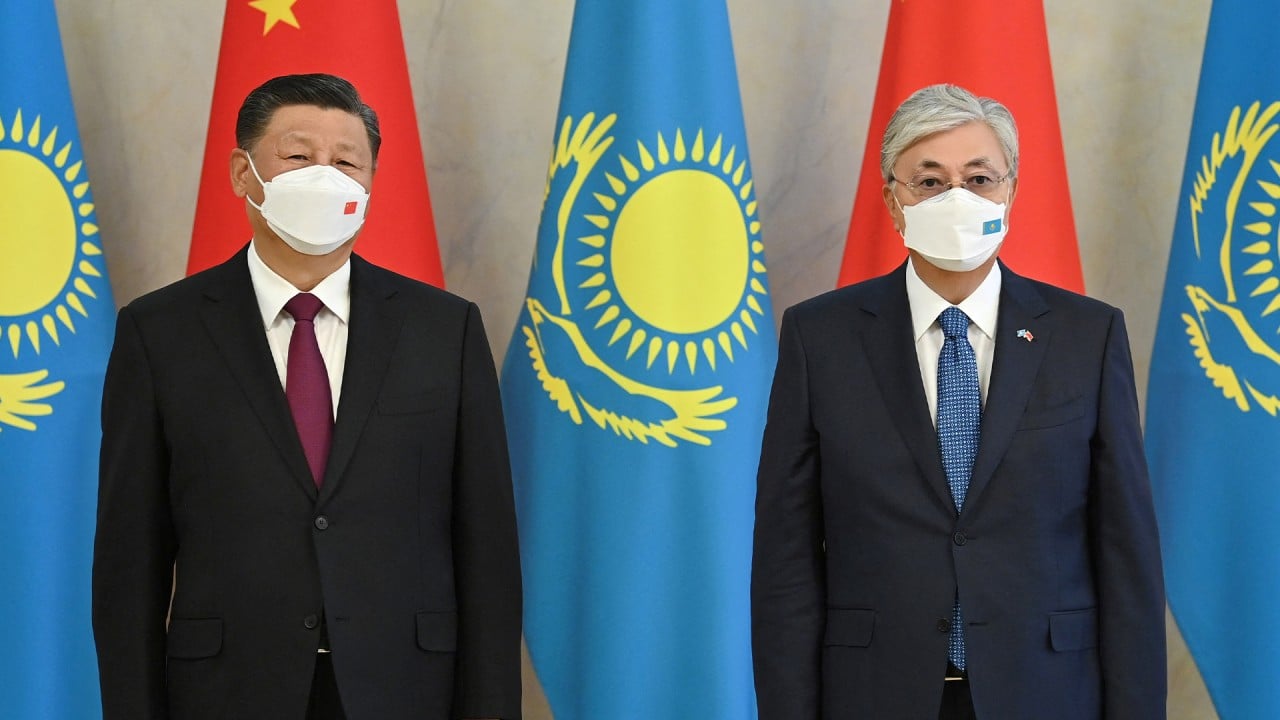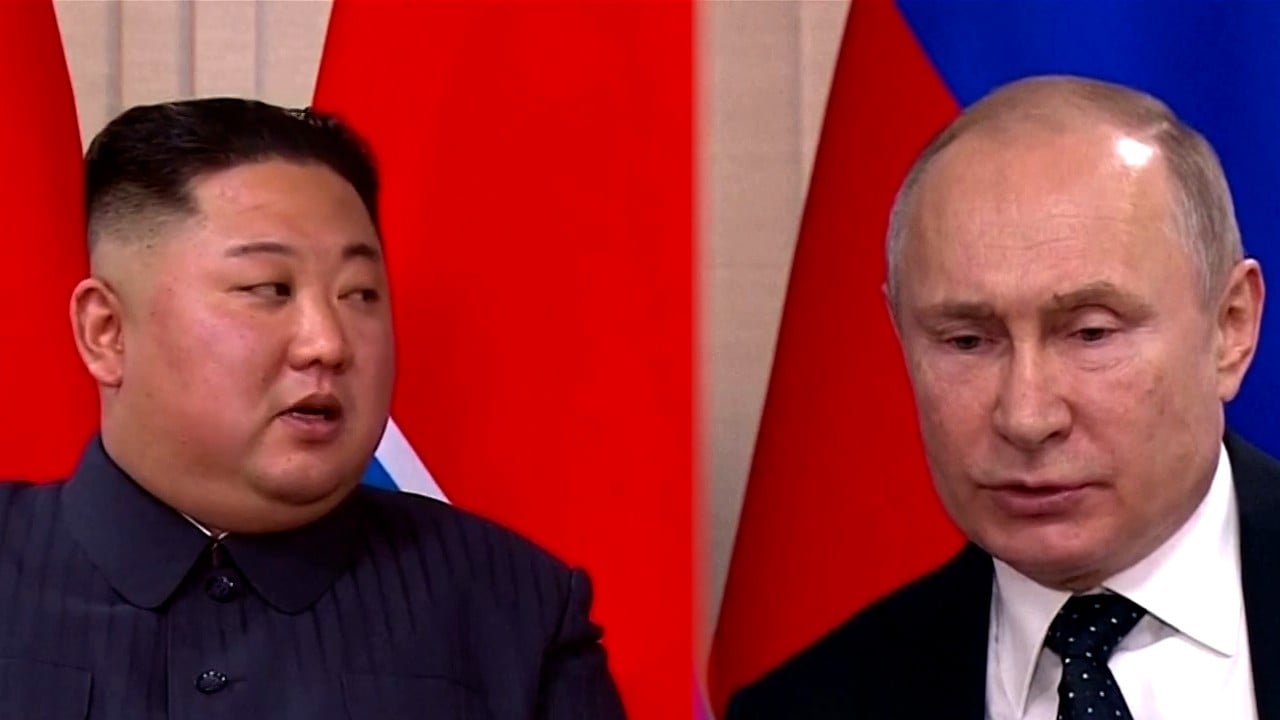
Xi Jinping extends birthday wishes to Chinese-speaking Kazakh president known for standing up to Putin
- Kassym-Jomart Tokayev, who once studied and served as diplomat in Beijing, meets Xi and turns 70 in ancient Silk Road city of Xian
- Kazakhstan’s leader will also attend China-Central Asia summit, which runs parallel to G7 meeting in Japan
“On this special day, your coming to China for a state visit not only demonstrates the high level relationship between our two countries but also your close and unbreakable ties with China,” Xi said in a meeting with Tokayev on Wednesday, according to China’s foreign ministry.
Summit a ‘major diplomatic event’ to boost China’s ties with Central Asia
Zhu Yongbiao, professor of politics and international relations at the Central Asia research institute at Lanzhou University, said the fact that Tokayev’s birthday coincided with his state visit and the summit could be seen as an arrangement to make him feel “particularly valued and cherished by his friends”.
Zhu said the birthday greetings reflected the “closeness of the personal relationship between President Xi and Tokayev” and showed a sense of ease between the two leaders.
He noted that is was relatively rare for a Chinese president to have “direct and intimate” communication with a leader from another country, without the need for translation.
Tokayev, elected in 2019, is fluent in Chinese, having studied for a year at Beijing Language and Culture University in the early 1980s, when China’s relationship with the Soviet Union began to thaw.
He was later posted to Beijing as a diplomat until the collapse of the Soviet Union in 1991.
“In this context, the China-Kazakhstan relationship is particularly precious,” Zhu said.
Born in 1953 to a family of Soviet intellectuals, Tokayev has served as Kazakhstan’s foreign minister and prime minister. He also speaks fluent English and French and has raised his profile through roles with Western-led international organisations.
Tokayev was named director general of the United Nations Office at Geneva in 2011 and has advocated for a world free of nuclear weapons.
He took part in the review on the Treaty on the Non-Proliferation of Nuclear Weapons in New York from 1995 to 2005. In 1996, he signed the Comprehensive Nuclear-Test-Ban Treaty representing Kazakhstan.
Kazakhstan has long been an ally of Russia, with which it shares a 7,600km (4,722-mile) border.
Tokayev has kept his distance from Putin since the invasion of Ukraine, but Kazakhstan abstained from condemning Russia in February at the United Nations General Assembly.
Kazakhstan, along with four other Central Asian countries attending the summit, has not given explicit support for Moscow’s actions.
Last summer, Tokayev openly showed resistance towards Putin over the war in Ukraine at the St Petersburg International Economic Forum – one of the Russian leader’s flagship events. At the forum, he openly disagreed with Putin while sitting beside him on stage – an act that struck a discordant note for the Kremlin as it came from a key ally.
Tokayev said he declined to recognise the Kremlin’s declaration of pro-Russian separatist strongholds in Ukraine as sovereign states when Putin sought to justify his war as legitimate under international law.
Zhu said Kazakhstan occupied a key role for China as part of the geostrategically important region of Central Asia.
Zhu said strong ties with Astana were of particular importance to China, as Kazakhstan is the strongest economy and largest country by area in Central Asia.
Zhu noted that Kazakhstan’s own economic initiative, known as the Bright Path, is “highly compatible” with Beijing’s belt and road.
“Without China’s [belt and road] or the involvement of other countries, [the Bright Path’s] effect would be greatly diminished, and that’s why people also say that the cooperation between China and Central Asia is mutual,” he added.
China is one of Kazakhstan’s largest trading partners. Bilateral trade between China and Kazakhstan jumped 34 per cent in 2022, according to data provided by the Chinese embassy in Astana.



